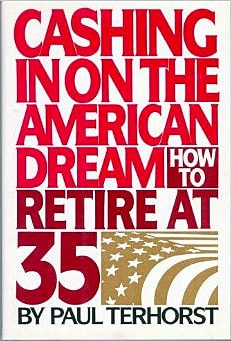Cashing in on the American Dream: How to retire at 35
All his life, Paul Terhorst wanted to be rich. Even in grade school, he looked forward to having a corporate job, to joining the world of big business. "I didn't just dream about money and power and expense account living -- I planned for it." He grew up and made it happen.
He got his MBA from Stanford. He became a certified public accountant and joined a large accounting firm. At age 30, he became a partner in the company. He had "a huge office, a leather chair, and a view of a polluted river". He'd achieved everything he'd always dreamed about.
The 8 best investments other than stocks

Investing requires resolve and a long-term vision, but it doesn't actually have to involve the stock market. Here's a guide to non-stock investing options:
Precious Metals
During the Great Recession, precious metal commodities like gold and silver were all the rage. As the stock market lost more than 50 percent of its value, gold and silver started a monumental rise in price. Gold went from around $600 per ounce in 2007 to peak at $1,900 per ounce in 2011.
The 4-Hour Workweek review and summary
When I picked up The 4-Hour Workweek, I was worried it was some sort of "get rich quick" book. The first few pages didn't do much to change my mind. 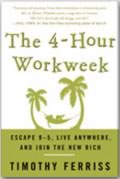 The author, Timothy Ferriss, makes a lot of bold claims, such as: "How do you create a hands-off business that generates $80,000 per month with no management? It's all here."
The author, Timothy Ferriss, makes a lot of bold claims, such as: "How do you create a hands-off business that generates $80,000 per month with no management? It's all here."
But something happened during the first few chapters. When I read a book, I use small sticky notes to mark interesting passages. After the first 100 pages of The 4-Hour Workweek, the book was thick with stickies. By the time I was finished, I had used an entire pad!
Ferriss does make a lot of bold promises, and some of the details along the way do read like the confessions of a get-rich-quick scammer. But I believe that an intelligent reader can easily extract a wealth of useful ideas from the book. For me, it's a keeper. I've read it three times already, and will probably read it again before the end of the year.
The high cost of being fat
I am fat.
I am fat, but I am not obese. I do not pause to catch my breath when climbing stairs. I do not avoid hikes or sports for fear of failure. But — no mistake — I am fat. I am far above my normal weight. I carry 205 pounds on a frame built for someone forty pounds lighter. [PDF: Body mass index and health, from the USDA.]
How does this relate to personal finance? Your health is your most important asset. Not your house. Not your car. Not your job. Not your retirement account. These are secondary. Your health is your most important asset. Even someone as young as I am (37) can face serious financial repercussions from being overweight.
How to homeschool on one income
When I wrote about the pros and cons of homeschooling recently, I left one major piece of the puzzle untouched: How does a family handle the loss of income if a stay-at-home parent is required?
It's not just the loss of monthly income. The parent who stays at home doing the bulk of the educating is also missing out on some other benefits of employment (employer contributions to a 401(k), social security benefits, avoiding a resume gap, etc.). These aren't necessarily easy to quantify.
So let's take a look at the financial piece of the puzzle to the extent we can; but first, is it possible to homeschool without losing income?
Is buying gold a good investment? Why I don’t invest in gold
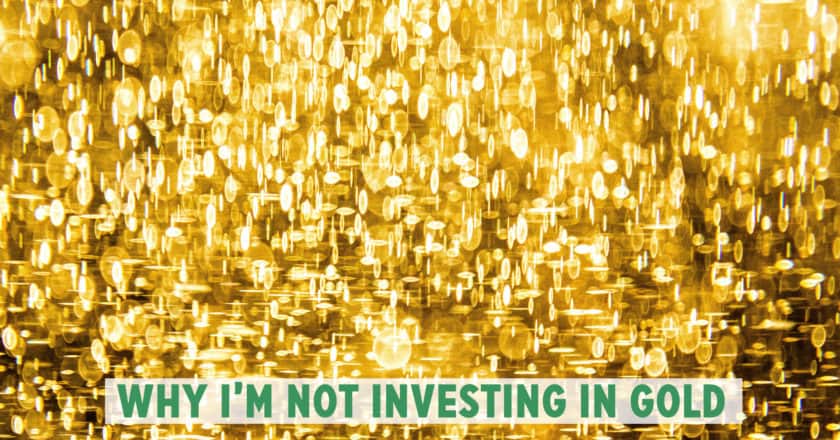
Over the past month, I've read a lot of articles about the virtues of investing in gold. Especially in Facebook forums, there's a lot of talk about how gold makes a great long-term investment. (Fortunately, I haven't seen any comments like this in the GRS community on Facebook.)
Whenever the economy gets turbulent, the goldbugs come out in force. They shout from the hilltops that the world is doomed and that the only safe haven is gold. And I'll admit, their arguments can sound pretty convincing.
When I started this site in 2006, I felt unqualified to comment on gold. I hadn't read much about it, and I didn't feel educated enough to offer an opinion. That's changed.
The Power of Less book review
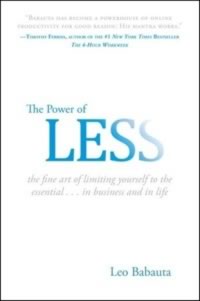 Zen Habits is one of my favorite weblogs. For the past two years, Leo Babauta's exploration of productivity and simple living has helped me make the most of my time. (Plus sometimes, like yesterday, he just hits it out of the park.)
Zen Habits is one of my favorite weblogs. For the past two years, Leo Babauta's exploration of productivity and simple living has helped me make the most of my time. (Plus sometimes, like yesterday, he just hits it out of the park.)
Babauta recently published his first book, The Power of Less, which seeks to help readers become more efficient — and more relaxed at the same time — by limiting themselves only to the essential.
Six lessons
The Power of Less is divided into two sections. In the first, Babauta explores the six guiding principles of his philosophy, "the ideas that will help you to maximize your productivity while simplifying your life":
Traditional advice is wrong: Here’s how much you actually need to save for retirement
I'm generally an even-keeled guy. I don't get worked up about much. I understand that different people have different perspectives, so I try to be respectful when others disagree with me. Having said that, there are indeed certain things that piss me off. Here are a couple that are centered around the idea of planning your retirement based on how much of your paycheck you should save.
Myth #1: You Need to Have 70% of Your Income
For instance, I get mad-dog lathered up at traditional advice about how much to save for retirement, such as this article at Business Insider (echoed here at The Wall Street Journal):
So how much are you supposed to be saving in order to finance 20 to 30 years post-work? The commonly accepted rule of thumb is that you'll want about 70% of your former annual income — at least — to continue living at or near the style to which you've been accustomed.
My personal philosophy of life: 52 lessons from 52 years
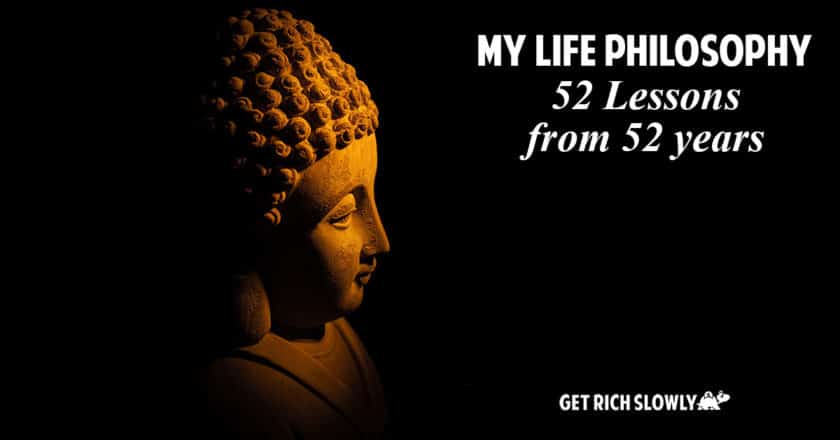
On this day in 1969, baby J.D. entered the world. I don't think there's any way my parents could have predicted the path their firstborn would take through life. It hasn't always been easy — no thanks to the obstacles I've placed in my own way — but I've really had a wonderful (and interesting) life, and I look forward to whatever time is left me.
I'm going to commemorate my 52nd birthday by sharing 52 of the most important things I've learned during my time on Earth. These are the most important pieces of my life philosophy.
My Life Philosophy
Before we dive into the rest of my life philosophy, I want to make something clear: I am no wiser or smarter than anybody else. And I'm certainly no better. But I am an individual.
Prepare for the Tax Preparer to Save Money
Tax Day falls on my birthday. This year, I'm giving myself the gift of a tax preparer.
Last year, in the days leading up to The Big Day, I locked myself in the home office. I emerged bleary-eyed from staring at a computer screen and mentally exhausted from climbing my way through an avalanche of paperwork and receipts. I also was hopped up on caffeine and paranoid — did I miss anything? Did I forget to carry a "1"? Was my hair on fire?
Yes, I waited until the last couple of weeks to file my return. I'll admit it. I hate doing my taxes nowadays, so I avoided it as long as possible. Continue reading...
